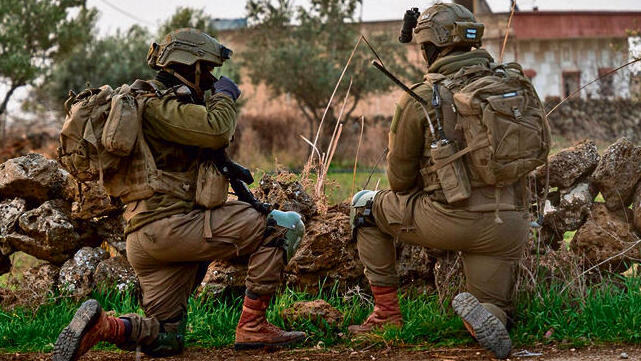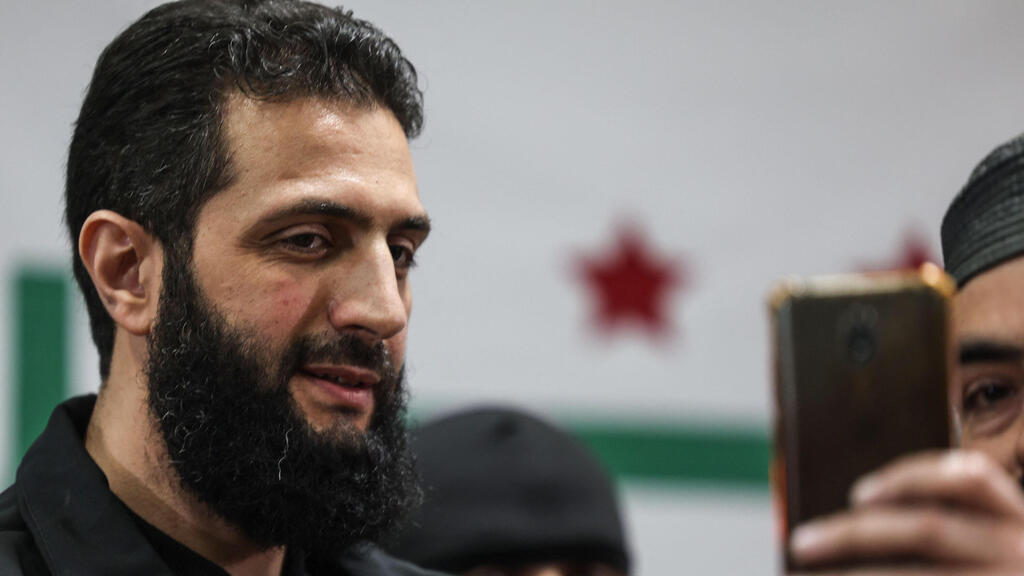Getting your Trinity Audio player ready...
Tensions between locals in southern Syria and Israeli forces operating in the buffer zone between the two countries have intensified in recent weeks, culminating in a deadly confrontation last week in the city of Nawa, in Syria’s Daraa province.
The clash began late Wednesday night when mosque loudspeakers reportedly urged residents to confront IDF troops. According to Syrian media, at least 10 civilians were killed during the unrest, which included Israeli artillery and airstrikes.
Clashes in Syria between IDF forces and Syrian civilians
The IDF said its forces had come under fire from gunmen and responded by eliminating several attackers from the ground and air. The next day, the city of Nawa came to a standstill, with videos circulating online showing empty streets. Mass funerals were held in a nearby town, with mourners chanting slogans against Israel.
This was not the first violent incident involving civilians in the region. In late March, another deadly exchange took place which was defined at the time as "the most serious" and even a "turning point" in the Syrian arena since the fall of the Assad regime and the entry of forces into the buffer zone. Syrian sources reported between five and seven fatalities near the village of Kuwaya in Daraa. The IDF stated that gunmen had opened fire at close range and were killed in return fire.
Each of these incidents, though deemed necessary from an Israeli security standpoint, is inflaming anti-Israel sentiment among civilians in southern Syria, particularly in Daraa, Quneitra and the Damascus countryside. A Syrian source told Ynet that Israeli forces are conducting daily patrols, setting up roadblocks and inspecting civilians, including searching mobile phones.
The same source alleged that recent weeks have seen increased Israeli activity, particularly in Quneitra, where Israeli forces have reportedly killed 100 sheep, detained herds and restricted access to farmland. “There’s daily gunfire from newly built Israeli military posts, often aimed at shepherds,” he said.
At Al-Mantra Dam – one of Quneitra’s primary recreational areas – residents say they are repeatedly being shot at by Israeli troops. "This is a dam that is a natural breathing space for residents. It is surrounded by greenery and families often come there to picnic, to play with their children. Israeli forces recently detained civilians who were near the dam, they threatened them with arrest and threatened to confiscate their vehicles and motorcycles if they returned to the area again. The Israeli army is blocking traffic with constant shooting, even though it is a civilian-tourist area," the resident said.
In his conversation with Ynet, he explained that it is one of the largest water dams in the region which supplies water to the agricultural lands in Quneitra and Daraa, where agriculture and livestock are the main sources of livelihood. He charged that "the Israeli forces invaded Syrian territory, they entered up to 15 kilometers and about ten civilians were killed directly by artillery attacks in the city of Nawa. Local residents are wondering about the motives of the occupation, given the lack of any clear military justification."
"This reflects a systematic policy of provoking the civilian population that has lived in the area for decades," the source said. "The residents of Quneitra are simple, peaceful people who depend on agriculture and livestock for their livelihood. And yet, Israel stops flocks of sheep and prevents residents from accessing the land. It violates all international norms and laws. These steps, in addition to the repeated shooting and incursions deep into Syria, emphasize the aggressive approach toward the civilian population."
He added that ongoing Israeli military actions—road construction, raids and cross-border operations—are fueling anti-Israel sentiment and pushing the population toward resistance.
The unrest coincides with a shift in Syria’s political leadership following the fall of Bashar Assad. The new regime, led by Ahmad al-Sharaa, previously known by his nom de guerre Abu Mohammed al-Golani, is composed of figures previously aligned with groups Israel considers hostile. While Israel is concerned about the emerging leadership, the rising friction with civilians is creating a new layer of instability.
Dr. Carmit Valensi, head of the Northern Program at the Institute for National Security Studies (INSS), told Ynet that such clashes reverberate across Syria, including in central and northern regions. “We haven’t seen funerals like these before—the kind that shift public sentiment against Israel in such visible ways,” she said.
Valensi noted that in the past, some Druze in southern Syria had called for cooperation with Israel. “Now those voices are being drowned out by calls for resistance,” she said. “There’s growing criticism online of al-Golani for failing to respond to Israeli actions, and public anger is far more intense than before.”
"They have no shortage of troubles, and suddenly you see how most of the media and public attention is diverted to what they call the 'Israeli invasion,' to Israeli attacks and clashes on the ground. At the funerals of those killed in Nawa, masses of people were seen and calls for resistance were heard. This is something we haven't seen in recent months from the residents of the area," she said.
She warned that without a formal security framework and international guarantees, continued Israeli presence in the area would only lead to more violent clashes. “Funerals are emotionally unifying events, and they’re stoking anti-Israel sentiment,” she said. “They’re also creating a stronger sense of solidarity with Gaza.”
Get the Ynetnews app on your smartphone: Google Play: https://bit.ly/4eJ37pE | Apple App Store: https://bit.ly/3ZL7iNv
According to Valensi, the clashes are forging a psychological link for Syrians between casualties in their towns and the war in Gaza. “From their perspective, Israel is attacking unjustly. They’re asking: ‘Who exactly is Israel fighting?’” she said.
She noted persistent reports circulating in Syria that Israel has an interest in the country’s disintegration—an idea many locals resent. “There’s a broad public desire to unify Syria under one flag, regardless of whether it’s Islamist or authoritarian. The international community is also backing this idea. Ironically, the only actors believed to benefit from instability in Syria are Israel, Iran and anti-Assad factions,” she said.
Valensi concluded by noting that, while some in Israel understand the strategic advantage of dealing with a unified state, this is not the impression among Syrians. “They view Israel as pushing for Syria’s fragmentation, and its supportive posture toward ethnic minorities only reinforces that belief, deepening the tensions with civilians living near the buffer zone.”








